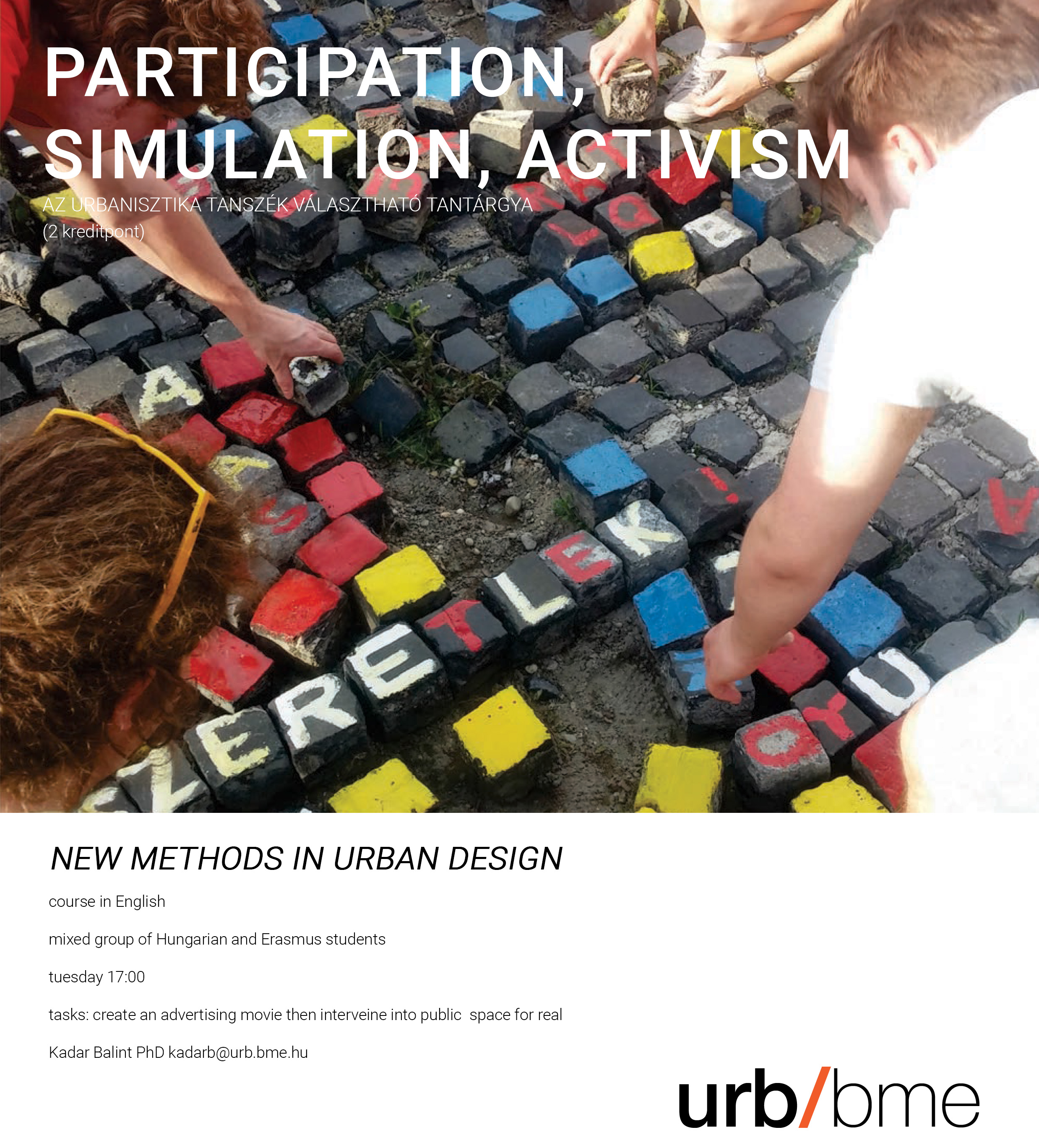Participation, simulation, activism: new methods in urban design
URB
Participation, simulation, activism: new methods in urban design
The elective course aims to teach students the practice of participatory design, focusing on urban public space design involving local communities. Students – after analyzing the European best practices – will get experience in involving different social groups and interest-groups into the design process of a public space. The course is based on the results from the research on the possibilities to enhance the practice of participatory design done at the Urban Design and planning department. Students will get an extensive knowledge on the international practice of participatory design, reading much of it’s English literature, analyzing completed European public spaces designed with this method. During the practical classes the students will make a design proposal or activity process simulation for a selected public space in Budapest, either in a dense urban context or on the spaces of a housing estate, or in a suburban situation. A group work is expected to study the capabilities of the place, the different social groups present and the possibilities to involve these locals. Students will simulate the process of participatory design, will place themselves in the position of the locals, will work on strategies to grant the collaboration needed. The process will result in a series of rules needed to gain equal possibilities of action from all social groups on the site. Students will map the real needs of locals, will get into interaction with their communities, and will find design tools to fulfill their needs. The first presentation will summarize the needs of the local groups, while the final presentation will show the finished results of the design process. Both presentations need to be handed in digitally the final grade is a result of the evaluation of both.
DESCRIPTION – TIMETABLE 2020 SPRING

